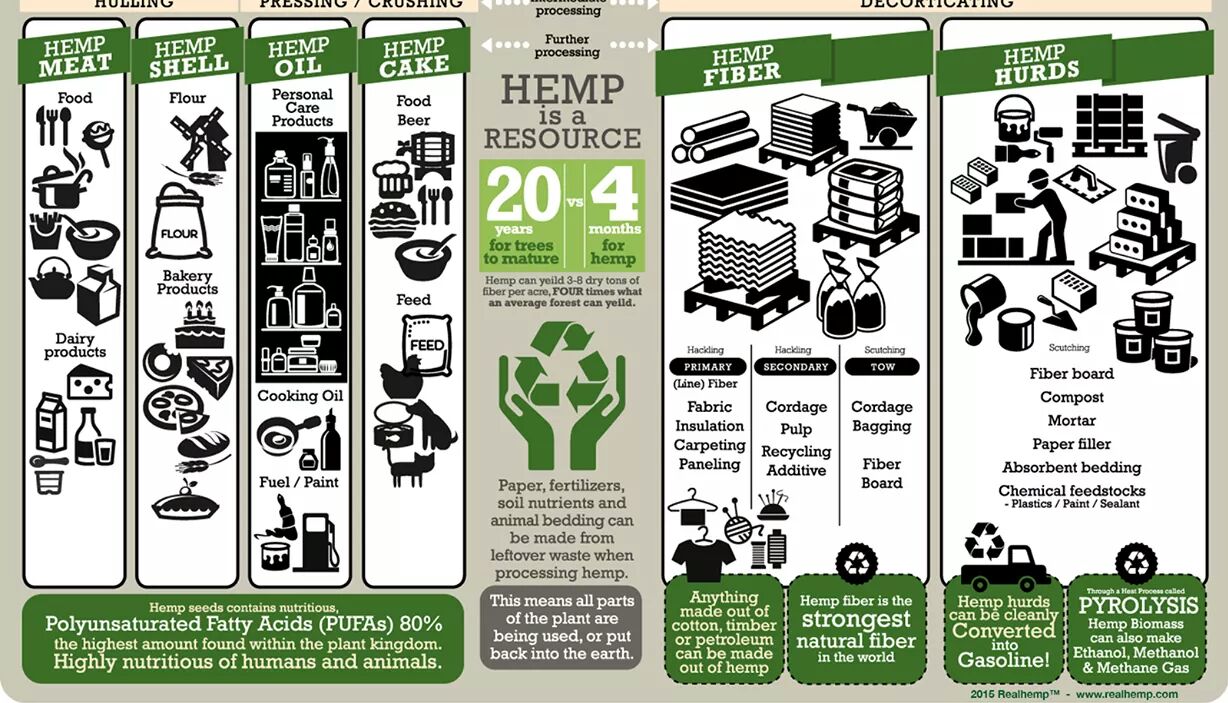
The Carbon Accounting Challenge
As the world grapples with the effects of climate change, accurate carbon accounting has become more important than ever. Carbon accounting refers to the process of measuring and reporting the amount of carbon dioxide (CO2) and other greenhouse gases that are released into the atmosphere by human activities. It is a key component of efforts to mitigate climate change and transition to a low-carbon economy.
However, accurately accounting for carbon emissions is a complex task that involves tracking emissions from a wide range of sources, including transportation, industry, and agriculture. Traditional carbon-reducing methods, such as planting trees or investing in renewable energy, have proven to be expensive and difficult to scale. Hemp may provide a promising solution to this challenge.
The Role of Hemp in Carbon Sequestration
Hemp is a versatile and fast-growing crop that has been cultivated for thousands of years. It has many uses, including for textiles, paper, and building materials. However, one of the most promising aspects of hemp is its ability to sequester carbon from the atmosphere.
Like other plants, hemp absorbs CO2 from the atmosphere through a process called photosynthesis. However, unlike many other crops, hemp has a high biomass-to-carbon ratio, meaning it is able to sequester more carbon per acre than other crops. This makes it a valuable tool in the fight against climate change.
Benefits of Hemp over Traditional Carbon-Reducing Methods
Hemp has several advantages over traditional carbon-reducing methods. For one, it is a renewable resource that can be cultivated on a large scale. In addition, it can be grown in a variety of environments and requires relatively little water and fertilizer compared to other crops.
Moreover, hemp has a range of other environmental benefits. It can be used to replace environmentally harmful products such as plastics and synthetic fabrics. It also has a deep root system that helps to prevent soil erosion and improve soil quality. This makes hemp a valuable tool not only for reducing carbon emissions, but also for promoting sustainable agriculture.
Hemp’s Potential to Disrupt the Carbon Market
As the world looks to transition to a low-carbon economy, the demand for carbon credits is likely to increase. Carbon credits are a way for companies to offset their carbon emissions by investing in projects that reduce or sequester carbon. However, the carbon market has been plagued by fraud and inconsistency, making it difficult for companies to invest with confidence.
Hemp may provide a solution to this problem. By accurately measuring the amount of carbon sequestered by hemp crops, it may be possible to create a reliable and transparent carbon market that benefits both farmers and investors. This could help to drive mass adoption of hemp as a carbon-reducing tool and create new opportunities for sustainable agriculture.
Overcoming Challenges to Mass Adoption of Hemp
While hemp has many promising benefits, there are still challenges to be overcome before it can be widely adopted as a carbon-reducing tool. For one, there is a lack of infrastructure for processing and distributing hemp products. In addition, hemp cultivation is still restricted in many countries due to its association with marijuana.
However, these challenges are not insurmountable. As more research is conducted on the benefits of hemp, and as regulations around cultivation and processing are relaxed, it is likely that we will see a rapid increase in the adoption of hemp as a carbon-reducing tool.
Conclusion: The Future of Carbon Accounting with Hemp
Hemp has the potential to revolutionize the way we think about carbon accounting and carbon reduction. Its ability to sequester carbon, combined with its many other environmental benefits, make it a valuable tool for promoting sustainable agriculture and reducing carbon emissions.
While there are still challenges to be overcome, the future looks bright for hemp. As more companies and investors recognize the potential of this versatile crop, we may see a rapid increase in its adoption as a carbon-reducing tool. This could not only help to mitigate the effects of climate change, but also create new opportunities for sustainable agriculture and economic growth.














